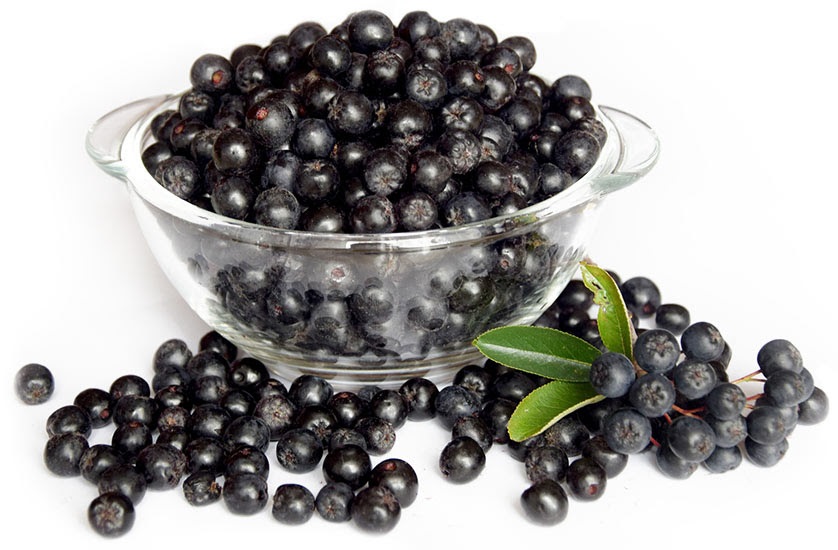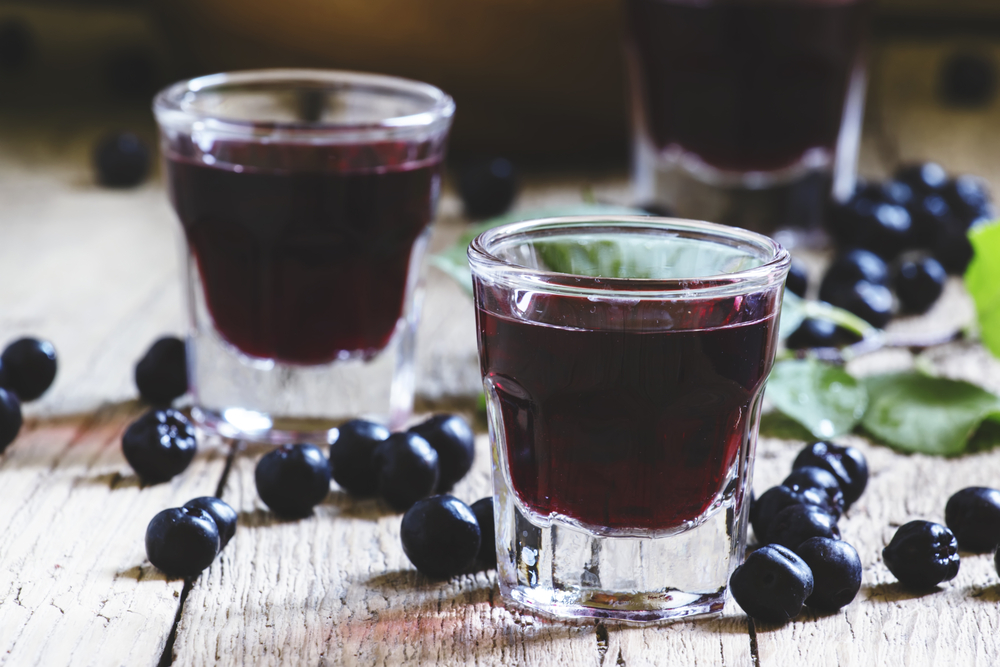I recently started drinking Aronia Berry (Chokeberry) Juice. I consume a shot twice daily, and one 25 oz bottle thus lasts me a long time (I auto-ship myself 4-packs, which means I can order once and then forget about it ☺).
I drink it for a few reasons. The first is its high Ursolic Acid (UA) content.
Ursolic Acid – an exciting new area of MS Research
This 2020 article in Neuroscience News titled “Compound in fruit peels halts damage and spurs neuronal repair in multiple sclerosis” is an easy read about Ursolic Acid’s potential as a treatment candidate for MS.
This April 2020 study, titled “A dual effect of ursolic acid to the treatment of multiple sclerosis through both immunomodulation and direct remyelination”, demonstrated that Ursolic Acid:
- Can both prevent and repair neurons in animal models of Multiple Sclerosis
- Can reduce further damage to neurons
- Can help rebuild the protective sheaths covering neurons
- Has significant potential as an oral anti-inflammatory for MS
- Has significant potential as a neural repair agent for MS
It’s an exciting new area of MS research.
Ursolic Acid has uses outside of MS as well. This 2018 study concluded that
“UA is a preventive and therapeutic intervention against various chronic diseases including cancer, metabolic syndrome, cardiovascular disease, brain disease, liver disease, and sarcopenia” (muscle wasting) and may improve exercise capacity, help with fat loss, and limit the loss of muscle tissue.
Anthocyanins and Antioxidants
Aronia Berry juice also has high levels of antioxidants (even higher than blueberries). Aronia has high levels of anthocyanins, which act as antioxidants, scavenge free radicals, and reduce inflammation. They have a higher amount of anthocyanins, phenolic acids, and proanthocyanidins per serving than most other berries, and are known to relieve oxidative stress.
This 2015 American Academy of Neurology (AAN) article states it well:
“Since MS is a chronic inflammatory disorder, having enough nutrients with anti-inflammatory properties may help prevent the disease or reduce the risk of attacks for those who already have MS,” said study author Sandra D. Cassard, ScD, with John Hopkins University.
“Antioxidants are also critical to good health and help reduce the effects of other types of damage that can occur on a cellular level and contribute to neurologic diseases like MS. Whether the nutritional differences that we identified in the study are a cause of MS or a result of having it is not yet clear.”
Aronia berries also contain vitamins C, E. beta-carotene, selenium, and zinc, which help amplify their antioxidant properties (1).
Quercetin and Resveratrol
Aronia contains both Quercetin and Resveratrol. Resveratrol (2) and Quercetin (3) are both considered to have neuroprotective effects.
Quercetin is a bioflavenoid that is a well-known anti-inflammatory (4) and increases the absorption of Resveratrol (5). There is evidence that Resveratrol has antioxidant and immunomodulatory effects for certain autoimmune diseases (6).
Click here for an excellent overview of Resveratrol’s role in autoimmune disease (6).
In Summary
Aronia also contains vitamins A, C, E, and K, beta carotene, copper, dietary fiber, folic acid, iron, magnesium, manganese, and zinc.
For an excellent detailed article about the many benefits of Aronia Berries, please see this article by The American Botanical Council (7).
I hope that you find this post helpful. All references are either directly linked to in the article or cited (#) below.
Wishing you the best on your journey to wellness!

References:
- http://cms.herbalgram.org/heg/volume16/09September/FAMBlackChokeberry.html?ts=1590092961&signature=5d52ff6b21a8c592aae66b6d77a8051f
- https://www.researchgate.net/publication/225086985_Resveratrol_Neuroprotection_in_a_Chronic_Mouse_Model_of_Multiple_Sclerosis
- https://pubmed.ncbi.nlm.nih.gov/15359113/
- https://www.ncbi.nlm.nih.gov/pmc/articles/PMC4808895/#B53-nutrients-08-00167
- https://examine.com/supplements/quercetin/
- https://www.ncbi.nlm.nih.gov/pmc/articles/PMC5748756/
- http://cms.herbalgram.org/heg/volume16/09September/FAMBlackChokeberry.html?ts=1590092961&signature=5d52ff6b21a8c592aae66b6d77a8051f
Additional Sources (with direct links in the body of this article)
- Compound in fruit peels halts damage and spurs neuronal repair in multiple sclerosis; Study reveals ursolic acid suppresses TH17 cells, which are one of the main drivers in the pathological autoimmune response of MS (2020) https://neurosciencenews.com/ursolic-acid-multiple-sclerosis-16089/
- A dual effect of ursolic acid to the treatment of multiple sclerosis through both immunomodulation and direct remyelination (2020) https://www.pnas.org/content/117/16/9082 or https://www.ncbi.nlm.nih.gov/pubmed/32253301
- Ursolic acid in health and disease (2018) https://www.ncbi.nlm.nih.gov/pmc/articles/PMC5928337/
- People with multiple sclerosis may have lower levels of key nutrients (2015) https://www.sciencedaily.com/releases/2015/02/150219162351.htm
- Underutilized Chokeberry (Aronia melanocarpa, Aronia arbutifolia, Aronia prunifolia) Accessions Are Rich Sources of Anthocyanins, Flavonoids, Hydroxycinnamic Acids, and Proanthocyanidins (2013) https://pubs.acs.org/doi/full/10.1021/jf402449q




